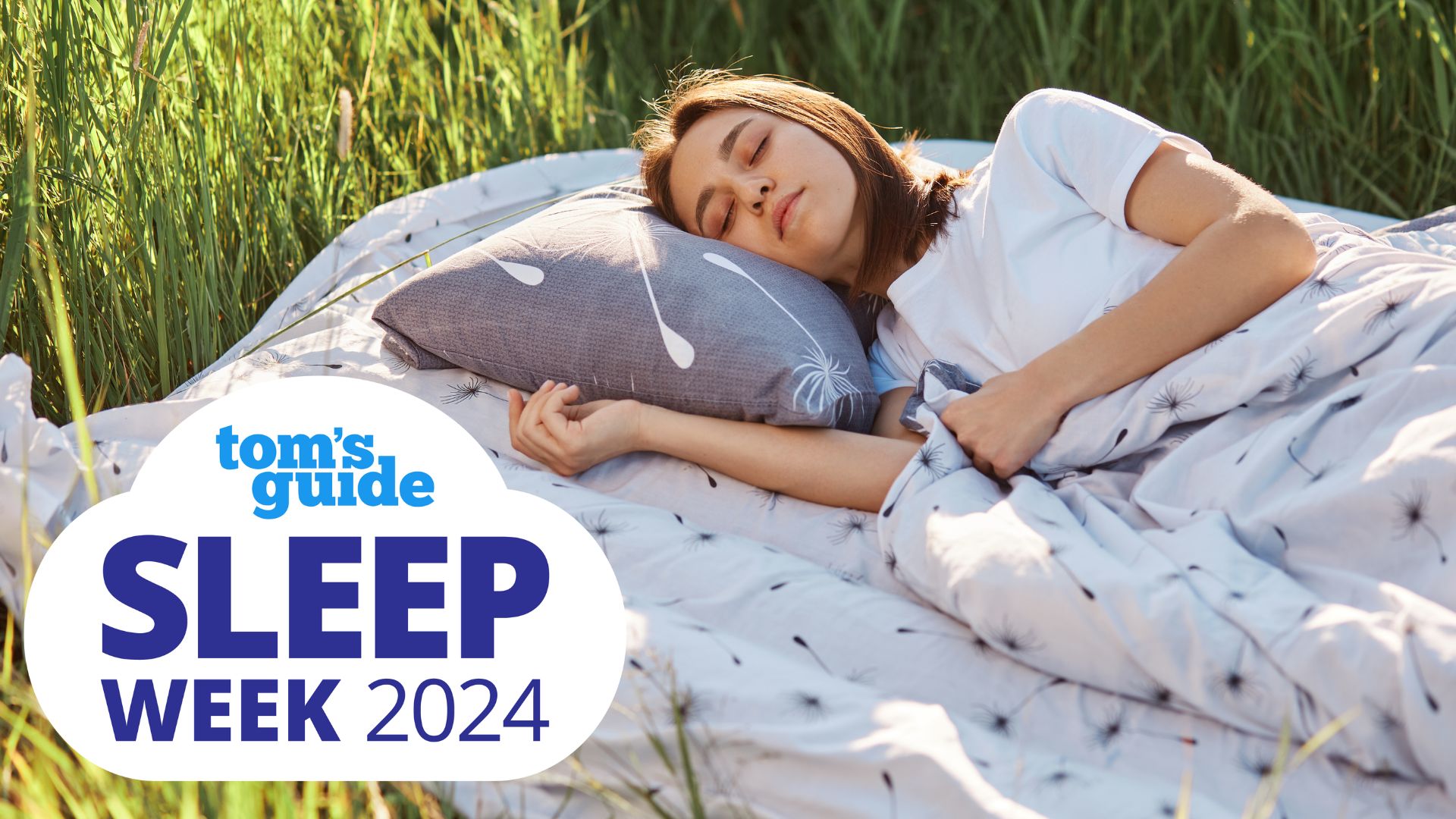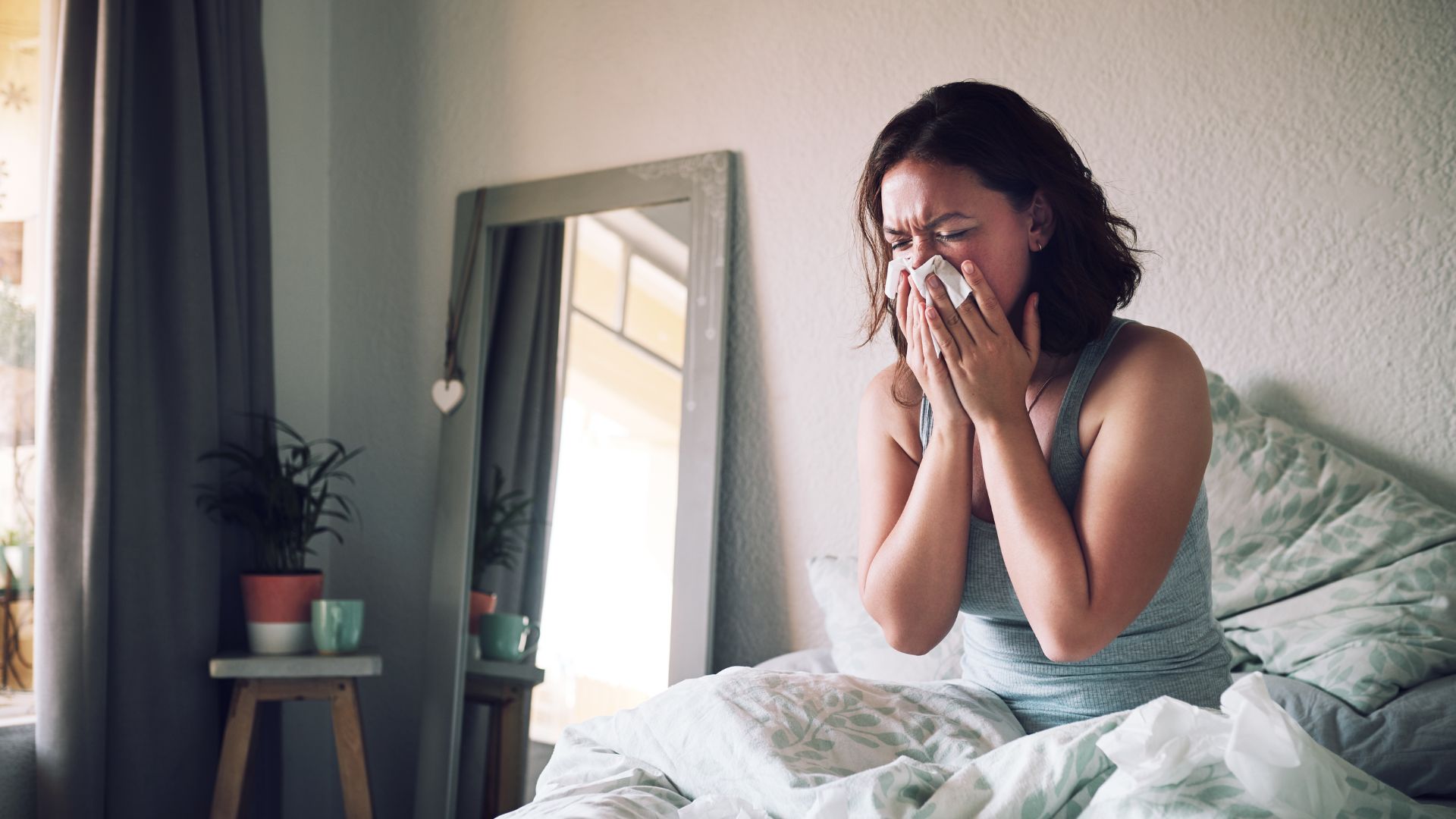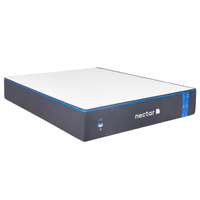Allergy season is coming — how to choose the best mattress to reduce your triggers
Allergy-proof your bed this World Sleep Day with our guide to choosing the right hypoallergenic mattress

With the first day of spring just around the corner, get ready for longer days, brighter mornings, warmer weather...and seasonal allergies. If night-time allergy triggers are interfering with your sleep quality this springtime, then it may be a good time to invest in a hypoallergenic mattress.
The best mattresses for keeping allergens at bay can induce a healthier sleep, preventing bacteria growth and health issues such as skin irritation and nasal congestion. Allergy-friendly mattresses also tend to be more sustainable and use high-quality, durable materials.
Here, we'll explain the causes of allergen build-ups and how hypollergenic mattresses can protect you from them. We'll also show you how to choose allergy-resistant mattresses, mattress covers, and bedding when shopping the mattress sales this Sleep Awareness Week 2024.
Nectar Mattress: up to 40% off at Nectar Sleep
During Sleep Awareness Week, you can save up to 40% on memory foam and hybrid mattresses at Nectar Sleep. We rate the Nectar Memory Foam as a great option for those with allergies as memory foam is naturally resistant to dust mites, one of the major causes of bedroom allergens. A queen is reduced to $649 in the US and £600 with a free bedding bundle in the UK. You'll also get a lifetime warranty and a year's sleep trial.
What is a hypoallergenic mattress?
Bedrooms are full of allergy triggers — such as dust, pet dander, and pollens — which can turn your mattress into a breeding ground for allergens. These allergens can cause symptoms that can disrupt your sleep and keep you awake, from itchy skin to wheezing.
While it's important to wash your bedding and vacuum your bedroom on a regular basis to help stop these allergens in their track, sometimes this isn't enough. That's why it's a good idea to invest in a hypoallergenic mattress.
Hypoallergenic mattresses are mattresses that provides protection against things that might set off your allergies. It does so by using allergy-proof materials that prevent bed bugs, dust, dust mites, mold, and mildew from flourishing in your bedroom.
What are the best hypoallergenic mattresses?
The best hypoallergenic mattresses tend to only use organic or natural ingredients, such as natural latex and organic wool and cotton. The best organic mattress also tend to be free of toxins, such as fiberglass and heavy metals, which can be major allergy aggravators.
Sign up to get the BEST of Tom's Guide direct to your inbox.
Get instant access to breaking news, the hottest reviews, great deals and helpful tips.
Natural latex is also dust mite resistant, long-lasting, breathable, and sustainable, so its found in many of the best luxury mattresses, too. You'll find that some of the top-rated natural latex beds are available at eco-luxury brands such as Awara, Birch Living, and Avocado.
However, it's best to avoid latex mattresses if you suffer from a latex allergy, but there are plenty of latex-free allergy-resistant mattresses out there. The best memory foam mattresses are often considered to be great at preventing allergy build-up as the space-age material is inherently dust mite resistant.
Be careful around any mattress containing springs such as hybrid beds and innersprings, as they can be a breeding ground for dust due to their hollow designs. If you're looking for the best hybrid mattress for allergies, choose one with high-quality hypoallergenic materials such as memory foam and cashmere.

What is the best hypoallergenic mattress cover?
The best mattress protectors and covers for allergies are usually tough, waterproof, and machine-washable. Allergy-proof mattress covers and protectors tend to made from hypoallergenic materials such as organic cotton, terry cotton, bamboo, and micro-fiber.
What is the best hypoallergenic bedding?
When shopping for bedding that will stop allergen build-up, look for natural, moisture-wicking, and anti-microbial materials. Look for sheets and pillows mades from fabric such as organic cotton, Egyptian cotton, organic wool, cashmere, silk, bamboo and microfiber. Tencel is also a good allergy-resistant material for hot sleepers due to its breathability.

How to choose the best hypoallergenic mattress for you
There's a lot to consider when buying a hypoallergenic mattress that's right for you. First of all, while some materials are considered hypoallergenic per se, that doesn't mean that they're right for everyone. For example, latex and organic wool are often billed as hypoallergenic, but the reality is that there many people with specific latex or wool allergies. Take into account what materials have caused your allergies to act up in the past, and avoid these materials while mattress shopping.
It's also important to consider what type of sleeper you are. If you're a hot sleeper, then you may want to find a mattress with a breathable material such as natural latex. If you find latex is too firm or you are allergic to it, consider using a memory foam mattress. While memory foam does have a tendency to trap heat, some of the best cooling mattress still use this material as its heat trapping tendencies can be offset with gel or copper infusions, Phase Change Material, and eco-friendly breathable materials such as organic cotton, bamboo, and Tencel.
As always, make sure your mattress has a firmness rating that's right for you. Medium to medium-firm is best side sleepers, medium-firm for back sleepers, and medium-firm to firm for stomach sleepers.
It's also good practice to look for certifications that promise the mattress will provide a top-quality, cleaner sleep. Some certifications you should look out for include:
- CertiPUR-US
- GREENGUARD Gold
- STANDARD 100
- MADE SAFE
- Global Organic Latex Standard (GOLS)

Frances Daniels is a PPA-accredited journalist and Sleep Staff Writer at Tom's Guide with an MA in Magazine Journalism from Cardiff University. Her role includes covering mattress and sleep news and writing sleep product reviews and buyer's guides, including our Best Hybrid Mattress 2025 guide. She is hugely interested in the relationship between good sleep and overall health, interviewing a wide array of mattress and sleep experts to create well-informed articles about important topics such as nutrition, sleep disorders (from sleep apnea to night terrors), lucid dreaming, sleep hygiene, and mattress care. She is also our specialist on mattress toppers — producing mattress topper reviews and taking care of our Best Mattress Toppers 2025 guide — and takes the lead on all content related to fiberglass-free mattresses for a clean, non-toxic sleep. Outside of Tom's Guide, she has written for Ideal Home, Homes & Gardens, and Marie Claire.


